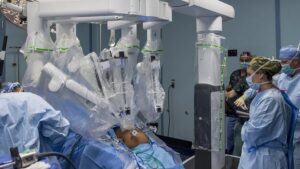
Entering rehabilitation is a significant step towards recovery from addiction, but it is only the beginning of a long journey. Once individuals complete their rehab program, they often face the daunting transition back into everyday life. This period can be filled with challenges, as the absence of the structured environment that rehab provides can lead to feelings of uncertainty and vulnerability. This is where aftercare plays a critical role in supporting individuals as they navigate their post-rehab lives.
Understanding Aftercare
Aftercare refers to the various programs and support services available to individuals after they complete a drug or alcohol rehabilitation program. It is designed to provide ongoing support, help prevent relapse, and promote a healthy, sober lifestyle. Aftercare may include therapy sessions, support groups, sober living environments, and individualized counseling, among other resources.
The importance of aftercare cannot be overstated. Statistics show that individuals who engage in aftercare services are more likely to maintain sobriety and successfully reintegrate into society than those who do not. Aftercare helps to bridge the gap between the highly structured environment of rehabilitation and the unpredictability of the outside world.
Why Structure is Important After Rehab
- Maintaining Motivation: The early days after leaving rehab can be filled with doubt and temptation. A lack of structure can leave individuals vulnerable to falling back into old habits. Aftercare provides a framework that keeps individuals motivated and focused on their recovery goals.
- Building a Support Network: One of the most critical components of aftercare is connecting individuals with others who understand their journey. Support groups, such as Alcoholics Anonymous (AA) or Narcotics Anonymous (NA), offer a community of shared experiences and collective strength. This support network can be invaluable in times of crisis.
- Developing Life Skills: Many individuals entering rehab may have struggled with various life skills due to the impact of addiction. Aftercare programs often provide resources for developing essential life skills, such as coping strategies, job readiness, financial management, and communication skills. These tools are crucial for creating a stable and fulfilling life after rehab.
- Continued Therapy and Counseling: Regular therapy sessions during aftercare allow individuals to process their experiences, thoughts, and feelings related to their addiction. Ongoing therapy can help identify triggers and develop coping mechanisms, which are essential for maintaining long-term sobriety.
- Preventing Relapse: The risk of relapse is highest in the first few months after rehab. Aftercare programs provide individuals with strategies to manage cravings and avoid high-risk situations. Regular check-ins and accountability measures can also keep individuals grounded in their recovery journey.
Types of Aftercare Support
Aftercare programs can vary widely in terms of structure and offerings. Here are some common types:
1. Sober Living Houses
Sober living houses are group homes for individuals recovering from addiction. They offer a structured environment where residents must adhere to rules, attend meetings, and contribute to household responsibilities. This type of setting provides a transitional phase between rehab and independent living.
2. Outpatient Treatment Programs
Outpatient programs allow individuals to continue receiving treatment while living at home. These programs typically include therapy sessions and group activities that reinforce recovery principles.
3. 12-Step Programs
12-step programs like AA and NA focus on community support and shared experiences. These programs encourage individuals to connect with others who have faced similar struggles, fostering a sense of belonging and accountability.
4. Individual Counseling
One-on-one counseling provides personalized support for individuals as they work through personal issues related to their addiction. A licensed therapist can help identify triggers, set goals, and work through underlying emotional or psychological issues.
5. Holistic Approaches
Some aftercare programs incorporate holistic therapies, such as yoga, meditation, art therapy, or nutritional counseling, to promote overall well-being. These approaches can address the mind, body, and spirit, creating a more comprehensive recovery experience.
Creating Your Structure
Building a personal aftercare plan is an essential part of post-rehabilitation success. This plan should include:
- Regular Therapy Appointments: Schedule ongoing appointments with a counselor or therapist.
- Daily Routines: Establish daily routines that provide structure, such as morning exercises, meal planning, and designated time for support group meetings.
- Goal Setting: Set short-term and long-term recovery goals, and regularly assess progress towards these goals.
- Engagement in Activities: Participate in social activities, hobbies, or volunteer work to foster connection and purpose.
- Accountability Partners: Find someone who can act as an accountability partner, providing support and checking in on your progress.
By proactively creating a structured plan, individuals can significantly increase their chances of maintaining long-term sobriety.
Conclusion
Transitioning from rehab to everyday life can be challenging, but aftercare provides the essential structure and support needed to navigate this crucial period. By engaging in aftercare services and building a strong support network, individuals can better equip themselves to face the challenges of recovery. If you or someone you know is in need of aftercare options, it’s important to explore the resources available, including professional guidance tailored to individual needs. To learn more about effective aftercare programs, consider reaching out for additional information on options that can aid in maintaining long-term sobriety.
In conclusion, embracing aftercare is not just about avoiding relapse; it’s about reclaiming one’s life and building a future rooted in health, happiness, and fulfillment.






